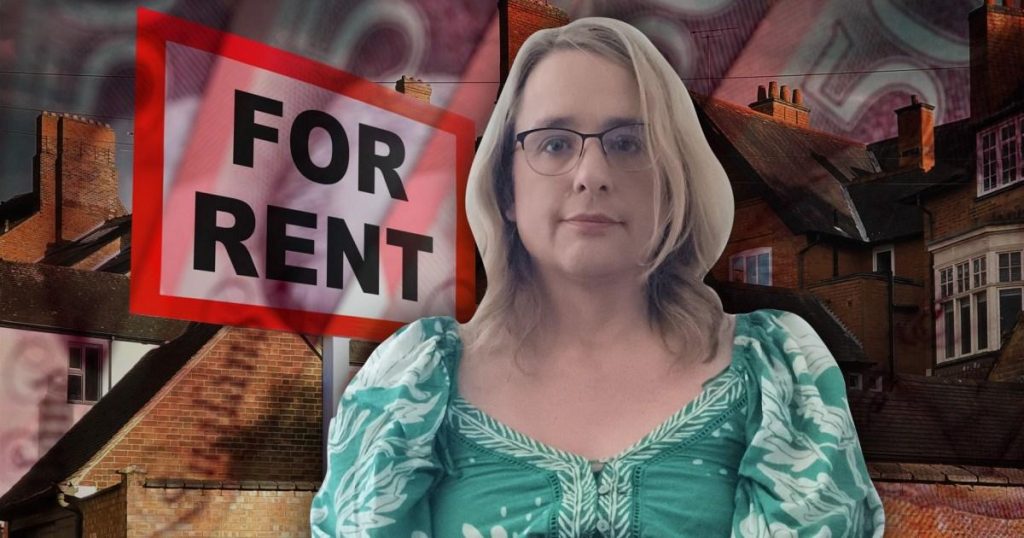The UK’s private rental sector is facing a crisis, with millions of renters teetering on the brink of homelessness due to soaring rents and the precarious nature of their employment. A recent Shelter survey, conducted by YouGov, reveals a stark reality: over 43% of working renters, equivalent to 2.9 million people, are just one paycheck away from losing their homes. A significant proportion, 1.7 million renters (26%), have insufficient savings to cover their rent if they were to lose their jobs, highlighting the financial vulnerability of this demographic. This precarious situation is further exacerbated by rising rents, which have seen a 9.1% increase nationally in the year leading up to November 2024, according to the Office for National Statistics (ONS). The average rent now stands at £1,362, putting immense strain on household budgets. Shelter’s own data corroborates this trend, revealing that 56% of private renters experienced rent increases in the past year, with one-third facing hikes exceeding £100. This confluence of factors – stagnant wages, rising rents, and lack of savings – creates a perfect storm, pushing many renters into a state of constant financial anxiety.
The human cost of this rental crisis is vividly illustrated by the case of Emma Harris, a 49-year-old former software developer from Birmingham. Made redundant in August 2024, Emma now faces rent arrears exceeding £2,000. Despite receiving Universal Credit, the housing benefit she receives falls short of covering her £995 monthly rent, forcing her to make difficult choices between essential needs like food and paying bills. Emma’s story is emblematic of the struggles faced by many renters, forced to sacrifice basic necessities and forgo hobbies and social activities to make ends meet. Her situation underlines the inadequacy of current housing support systems in addressing the affordability crisis within the private rental sector. Emma’s plea for affordable housing reflects a broader societal need for housing solutions that cater to those earning a living wage or relying on government support. The construction of new homes, while a positive step, must prioritize affordability to genuinely address the housing crisis and prevent individuals like Emma from falling into a cycle of debt and precarity.
The escalating rental crisis has prompted the newly elected Labour government to introduce the Renters Rights Bill, aiming to overhaul the private rental sector and provide greater protections for tenants. The bill’s most significant provision is the abolition of Section 21 “no-fault” evictions, a mechanism that allows landlords to evict tenants without providing a reason. This practice has contributed to record levels of evictions and created an environment of insecurity for renters. The bill also seeks to address other issues plaguing the sector, including exorbitant rent increases and the demand for several months’ rent in advance. By introducing greater fairness and transparency into the system, the Renters Rights Bill aims to provide renters with more stability and security, allowing them to plan for the future without the constant fear of eviction.
The Renters Rights Bill is currently under scrutiny, undergoing a line-by-line review by a cross-party committee of MPs. This “committee stage” allows for detailed examination and potential amendments to the legislation before it progresses to the next phase, the “report stage.” Shelter, a leading housing charity, is actively campaigning for the government to commit to building 90,000 social rent homes annually for the next ten years. This investment, they argue, is crucial to providing genuinely affordable and secure housing options and alleviating the immense pressure on social housing waiting lists, ultimately contributing to a reduction in homelessness. The charity’s campaign highlights the urgent need for long-term solutions to address the structural issues underlying the housing crisis, moving beyond short-term fixes and addressing the root causes of housing insecurity.
The government, in response to the growing concerns surrounding the rental crisis, emphasizes its commitment to transforming the private rented sector through the Renters Rights Bill. They highlight the bill’s focus on ending “no-fault” evictions, aiming to provide renters with greater security and stability. Furthermore, the government points to its broader “Plan for Change,” which aims to tackle the wider housing crisis by increasing the supply of social and affordable housing. While the government’s stated intentions are positive, their effectiveness will ultimately depend on the implementation and enforcement of the Renters Rights Bill, as well as the scale and speed of social housing construction. The success of these measures will be measured by their tangible impact on the lives of renters like Emma Harris, who are struggling to keep a roof over their heads amidst a challenging economic climate.
Shelter, however, remains critical of the government’s response, arguing that the current measures are insufficient to address the fundamental issues driving the rental crisis. Polly Neate, Shelter’s chief executive, emphasizes the crippling effect of high rents on renters’ ability to save, highlighting the precarious position of millions forced into the private rental sector due to a chronic shortage of social housing. She argues that the only truly affordable alternative to private renting is social housing with rents linked to local incomes. Shelter’s call for a significant increase in the construction of social housing underscores the need for a fundamental shift in housing policy, moving away from a reliance on the private rental sector and towards a system that prioritizes affordability and security for all. The ongoing debate surrounding the Renters Rights Bill and the government’s housing policies reveals the complex and multifaceted nature of the housing crisis, requiring a comprehensive and sustained effort to ensure that everyone has access to safe, secure, and affordable housing.











